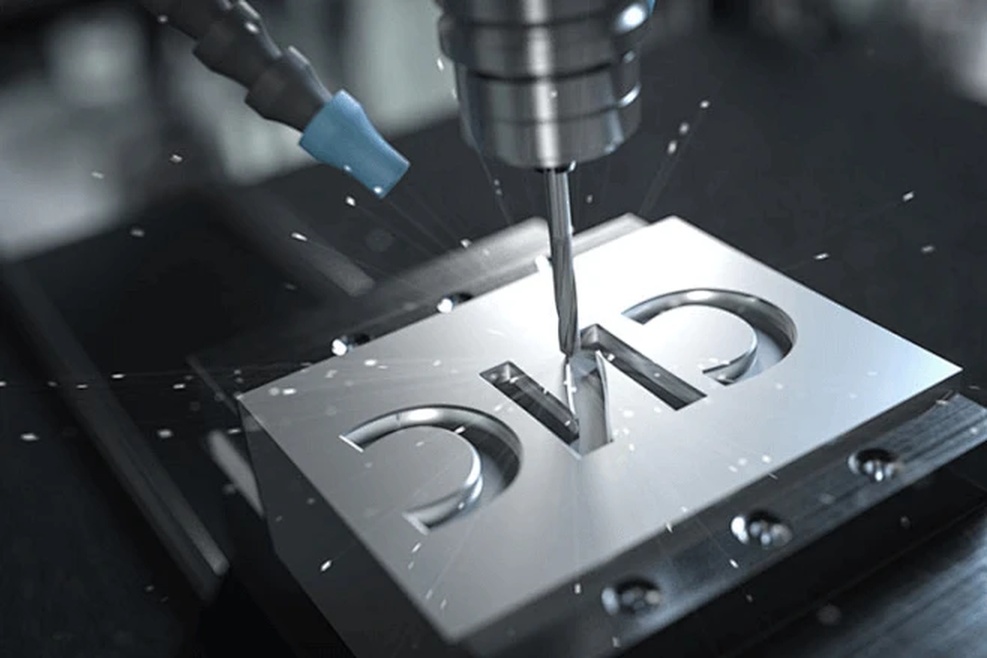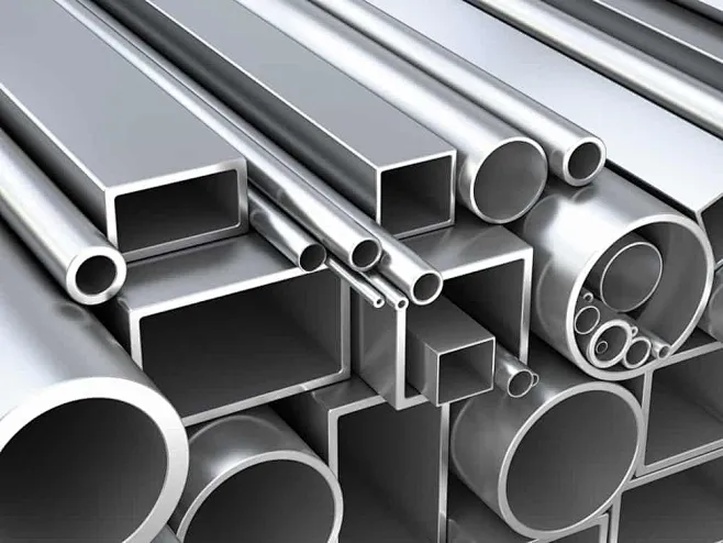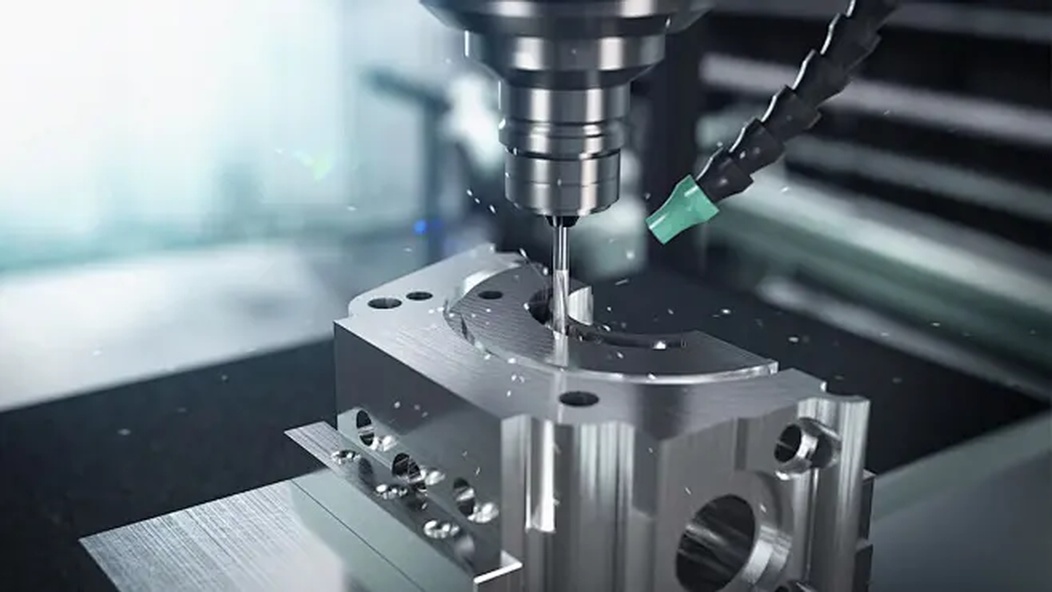Material selection is one of the key factors that determine the success or failure of a CNC machining project, directly affecting the performance and durability of the final product. Faced with a variety of optional materials such as metals, plastics, composites, etc., in-depth understanding of the characteristics and applicable scenarios of each material can make the best choice for your project.
In this guide, we will take a deep look at the different types of CNC machining materials and how to choose the right one for your project.

Full Guide to CNC Machining Metal Materials: Key Points for Material Selection from Aluminum Alloy to Titanium Alloy
CNC machining is widely used in multiple industries due to its high precision and high efficiency. Different types of metals are suitable for CNC machining. However, each metal has its own unique properties, strengths, and performances that are suitable for different metal CNC projects. The following are the types of metals commonly used in CNC machining projects.
Aluminum
Copper
Bronze
Steel
Stainless Steel
Magnesium
Titanium
Aluminum
Aluminum (Al) is a lightweight silvery-white metal with low density (2.7g/cm³), high strength and corrosion resistance. Its surface will naturally form a dense oxide layer to prevent further rust. As one of the most abundant metal elements in the earth's crust, aluminum has excellent thermal/electrical conductivity and 100% recyclable and environmentally friendly characteristics. Through casting, extrusion, CNC processing and other processes, it is widely used in: transportation (lightweight automotive parts, aircraft structural parts) electronic appliances (mobile phone housings, heat sinks) packaging industry (cans, foil films) architectural decoration (curtain walls, door and window profiles) It is an ideal engineering material that balances performance, cost and sustainability.
Copper
Copper is a metal material with excellent thermal and electrical conductivity, and it performs well in the fields of electrical, electronic and heat exchange. Although it is relatively soft and prone to sticking during machining, it can still achieve ideal machining results by optimizing machining parameters and selecting special tools.
It is worth mentioning that copper also has natural antibacterial properties, which makes it an ideal choice for medical equipment and public health. Its unique reddish color not only gives the product a good visual effect, but also adds a high-end texture. From industrial applications to decoration, copper can perfectly balance the needs of functionality and aesthetics.
Bronze
Bronze is an alloy formed by copper and adding tin and other elements, which has excellent mechanical properties and processing characteristics. This material is not only high in strength and corrosion resistance, but also shows excellent wear resistance. It is particularly suitable for manufacturing precision parts such as bearings and gears that are subject to high friction.
Compared with aluminum, bronze is not the first choice in the field of CNC machining, but its unique material properties make it irreplaceable under special working conditions. The material is highly favored in high-end fields such as shipbuilding and aerospace due to its excellent weather resistance and ability to adapt to harsh environments. Bronze parts can maintain stable performance whether dealing with seawater corrosion or extreme temperatures.
Steel
Steel is a durable metal with high tensile strength and corrosion resistance. Steel comes in different types and grades, including carbon steel, tool steel, and mild steel. Therefore, steel is a reliable material that can be used to manufacture automotive parts, medical equipment, and heavy-duty components.
Compared to materials such as titanium, steel is a more economical alternative for manufacturing parts. In addition, steel is also easy to weld. Since steel is corrosion-resistant, no additional coatings or treatments are required. The grade or type of steel you are machining will determine its machinability. Some steels are easier to machine, while others may be difficult to machine.
Stainless steel
Stainless steel contains chromium, which makes it corrosion-resistant. This material is strong and durable. However, unlike ordinary steel, stainless steel is more difficult to machine due to its toughness. Common grades such as 316 or 304 are suitable for manufacturing food processing equipment and medical devices.
CNC machining stainless steel is popular for its high performance and long life. Stainless steel surfaces are not prone to reaction, making them ideal for applications where cleanliness is a concern.
Magnesium
Magnesium is a lightweight metal that is easy to machine. Although it has a low density, magnesium has a high strength-to-weight ratio. Therefore, magnesium is a good material choice for applications where lightweighting is important. For example, manufacturers like to use magnesium to produce automotive parts and aerospace components. You must be very careful when machining metals such as magnesium because magnesium in powder form is highly flammable.
Titanium
Titanium is a hard metal with good biocompatibility and corrosion resistance. It is often used to manufacture aerospace components, high-performance engineering parts, and medical implants. Therefore, titanium is a highly reliable material that can maintain its performance regardless of temperature fluctuations. Titanium alloys are corrosion-resistant and are ideal for marine applications.
However, machining this material requires high-performance tools and extensive experience. Titanium metal can withstand any harsh conditions due to its toughness.

How to Choose Plastic for CNC Machining? ABS/Nylon/POM Property Comparison Guide
Plastics have become one of the most commonly used CNC machining materials in the field of precision manufacturing due to their excellent performance. Plastics themselves have corrosion-resistant properties. There are many types of these lightweight CNC machining materials, each with different mechanical and chemical properties.
When it comes to CNC machining, you must understand the characteristics of each plastic. This will help you choose the plastic that best meets the requirements of your CNC machining project. The following is a list of CNC plastic materials.
ABS/PC/PMMA/POM/PA/PE/PEEK/PP/HDPE/HIPS/LDPE/PBT/PPA/AI/PET/PPS/PS/PVC/PTFE/UPE/Bakelite/FR-4
ABS (Acrylonitrile Butadiene Styrene)
ABS plastic is a high-strength, tough engineering plastic with excellent impact resistance and processing properties. It is widely used in electronic housings, automotive parts and daily necessities.
PC (polycarbonate)
PC (polycarbonate) is an engineering plastic with high transparency and excellent impact resistance. It has both high temperature resistance (120℃) and dimensional stability. It is widely used in high-strength demand fields such as bulletproof glass, electronic shields and medical devices.
PMMA (acrylic acid)
PMMA (acrylic acid) is an engineering plastic with high transparency and excellent weather resistance. It has a light transmittance of over 92% and is resistant to UV aging. It is widely used in optical lenses, advertising signs and medical devices and other fields that have strict requirements on light transmittance.
POM (polyoxymethylene, also commonly known as Saigang/Delrin)
POM (polyoxymethylene, commonly known as Saigang/Delrin) is an engineering plastic with high rigidity and low friction coefficient. It has excellent wear resistance and dimensional stability. It is particularly suitable for manufacturing precision gears, bearings and sliding parts and other mechanical parts with strict tolerance requirements.
PA (nylon)
PA (nylon) is a high-strength, wear-resistant engineering plastic with excellent impact resistance and self-lubricating properties. It is particularly suitable for manufacturing gears, bearings and moving parts and other mechanical parts that need to withstand long-term friction.
PE (polyethylene) is a lightweight, corrosion-resistant thermoplastic with good chemical stability and insulation properties. It is widely used in packaging, containers, pipes and daily necessities. Its high-density (HDPE) and low-density (LDPE) variants can meet different strength and flexibility requirements.
PEEK (polyetheretherketone)
PEEK (polyetheretherketone) is an ultra-high-performance special engineering plastic with excellent properties such as high temperature resistance (260℃ long-term use), high strength, chemical corrosion resistance and radiation resistance. It is an ideal choice for extreme environment applications such as aerospace, medical implants and petrochemicals.
PP (polypropylene)
PP (polypropylene) is a lightweight, chemically resistant general-purpose plastic with excellent fatigue resistance and insulation properties. Its high melting point (~160℃) and recyclable properties make it an ideal choice for food packaging, medical devices and automotive parts. The impact strength can be further improved through copolymerization modification.
HDPE (High Density Polyethylene)
HDPE (High Density Polyethylene) is a highly crystalline, high-strength thermoplastic with excellent chemical corrosion resistance, impact resistance and low water absorption. It is widely used in load-bearing pipes, chemical containers, packaging materials and 3D printing wires. Its environmentally friendly and recyclable characteristics are more in line with the needs of sustainable development.
HIPS (High Impact Polystyrene) is a polystyrene material modified by rubber. It has both high impact strength and easy processing. It has excellent surface finish and low cost. It is widely used in fields such as home appliance housings, toys, and food packaging that require both strength and appearance.
LDPE (Low Density Polyethylene)
LDPE (Low Density Polyethylene) is a flexible, tear-resistant thermoplastic with excellent chemical stability and high transparency. Its low crystalline structure brings good ductility and is an ideal choice for flexible applications such as packaging films, soft containers and cable sheaths.
PBT (Polybutylene Terephthalate)
PBT (Polybutylene Terephthalate) is a high-strength, excellent heat-resistant Engineering plastics with excellent electrical insulation and chemical corrosion resistance are widely used in the manufacture of precision parts such as electronic appliances, automotive parts and industrial equipment.
PPA (polyphthalamide)
PPA (polyphthalamide) is a special engineering plastic with ultra-high heat resistance and high strength. The long-term use temperature can reach 180°C~220°C. It has excellent mechanical strength and chemical resistance. It is designed for high performance requirements in the automotive, electronic and industrial fields.
PAI (polyamide-imide)
PAI (polyamide-imide) is an ultra-high performance special engineering plastic with extremely high temperature resistance (260°C long-term use), ultra-high mechanical strength and excellent dimensional stability. It is specially developed for extreme environmental requirements of aerospace, semiconductors and high-end industries.
PET (polyethylene terephthalate)
PET (polyethylene terephthalate) is a high-transparency, high-strength thermoplastic polyester material with excellent chemical resistance and dimensional stability. It is also 100% recyclable PET (Polyethylene terephthalate) is a high-transparency, high-strength thermoplastic polyester material with excellent chemical resistance and dimensional stability. It is also 100% recyclable and environmentally friendly, making it an ideal choice for food packaging, fiber and engineering applications. PPS (Polyphenylene sulfide) PPS (Polyphenylene sulfide) is a special engineering plastic with ultra-high heat resistance and chemical corrosion resistance. The long-term use temperature can reach 220°C~240°C. It has excellent dimensional stability and flame retardancy (UL94 V-0) and is designed for harsh environments in the automotive, electronics and chemical industries. PET (Polyethylene terephthalate) PET (Polyethylene terephthalate) is a high-transparency, high-strength thermoplastic polyester material with excellent chemical resistance and dimensional stability. It is also 100% recyclable.
PPS (polyphenylene sulfide)
PPS (polyphenylene sulfide) is a special engineering plastic with ultra-high heat resistance and chemical corrosion resistance. The long-term use temperature can reach 220°C~240°C. It has excellent dimensional stability and flame retardancy (UL94 V-0) and is designed for harsh environments in the automotive, electronics and chemical industries.
PS (polystyrene)
PS (polystyrene) is a general-purpose plastic with high transparency and easy processing. It has excellent insulation and low cost advantages. Its brittleness can be significantly improved by HIPS modification. It is widely used in daily necessities, packaging and disposable products.
PVC (polyvinyl chloride)
PVC (polyvinyl chloride) is a versatile and cost-effective thermoplastic. The hardness can be flexibly adjusted (from soft film to hard pipe) by adding plasticizers. It has both weather resistance and flame retardancy (UL94 V-0), widely used in the fields of construction, medical treatment and daily necessities.
PTFE (polytetrafluoroethylene, commonly known as Teflon)
PTFE (polytetrafluoroethylene, commonly known as Teflon) is a high-performance polymer material with extremely low friction coefficient and excellent chemical corrosion resistance. It can maintain stable performance in the extreme temperature range of -200°C to +260°C. It is an ideal choice for the chemical, electronic and food industries.
UPE (ultra-high molecular weight polyethylene)
UPE (ultra-high molecular weight polyethylene) is an engineering plastic with excellent wear resistance. Its molecular weight is as high as 2 million to 6 million. Its impact resistance and self-lubrication far exceed those of ordinary polyethylene. It is an ideal material for mining machinery, logistics transportation and medical implants.
(PF) Phenolic resin
Phenolic resin (PF) is a high-strength, high-temperature resistant thermosetting plastic with excellent electrical insulation and flame retardancy (UL94 V-0). The long-term use temperature can reach 150°C~180°C, a classic choice in the fields of electrical appliances, automobiles and composite materials.
FR-4 (glass fiber reinforced epoxy resin laminate)
FR-4 (glass fiber reinforced epoxy resin laminate) is a composite material with high mechanical strength and excellent electrical insulation, low water absorption and High temperature stability (TG ≥ 130 ° C), is the industry standard material for PCB circuit boards, electrical insulation components and high-performance structural parts.

Analysis of key factors to consider when selecting CNC machining materials
Choosing the right material for your CNC machining project is crucial, as it will directly affect the final performance, cost and service life of the product. The following are the core factors to consider when selecting materials:
Part functional requirements
First, you need to clarify the use requirements of the part: Does it need to withstand high loads? Does it work under extreme temperatures? For example, aerospace parts require high-strength and lightweight materials, while food processing equipment must meet hygiene standards.
Weight considerations
In weight-sensitive fields such as automobiles and robots, light metals such as aluminum and magnesium or engineering plastics such as PEEK are ideal choices. If both high strength and durability are required, titanium alloys or stainless steel can be considered.
Corrosion resistance
For parts exposed to moisture or chemical environments, titanium, stainless steel or resistant materials such as PEEK and PTFE should be preferred. Corrosive materials, which can significantly extend the service life of parts.
Cost-effectiveness
Common metals such as aluminum are low-cost and suitable for mass production; while titanium and special engineering plastics, although the unit price is higher, can reduce the overall cost of use in specific applications. At the same time, the impact of processing difficulty on cost should be considered.
Processing characteristics
The machinability of the material directly affects production efficiency and cost. Soft materials such as aluminum are processed quickly, while hard materials such as titanium require special tools and longer processing time.
Environmental requirements
Sustainability is becoming increasingly important, and recyclable materials such as aluminum and some plastics are more in line with environmental trends. At the same time, pay attention to the environmental impact during processing.
Dimensional stability
Precision parts need to choose materials with low thermal expansion coefficients and small deformation after processing, such as Invar or specific engineering plastics, to ensure dimensional accuracy.
Surface treatment
Different materials have different adaptability to surface treatment, such as aluminum is suitable for anodizing, while stainless steel is more suitable for PVD coating, which will affect the appearance and performance of the final product.









